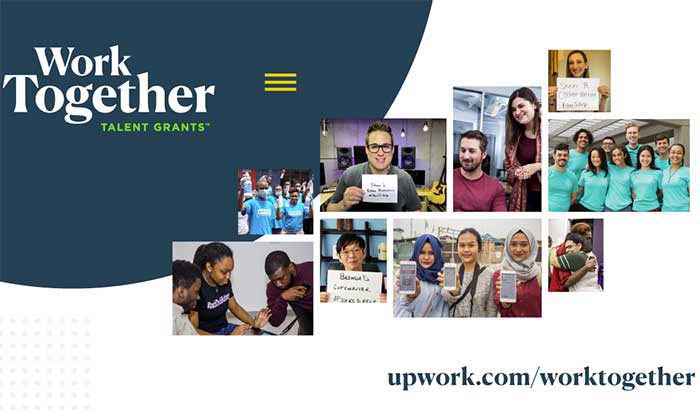Freelance Rates and the Modern Economy in 2026: What Businesses and Professionals Need to Know
Freelancing as a Core Pillar of the Global Labor Market
By 2026, freelancing has moved decisively from the margins of the labor market to its center, becoming a structural component of how work is organized across North America, Europe, Asia, Africa, and South America. Organizations in the United States, United Kingdom, Germany, Canada, Australia, France, Italy, Spain, the Netherlands, Switzerland, China, Sweden, Norway, Singapore, Denmark, South Korea, Japan, Thailand, Finland, South Africa, Brazil, Malaysia, and New Zealand now routinely integrate independent professionals into long-term workforce strategies rather than treating them as ad hoc or emergency resources. This shift has been accelerated by advances in digital infrastructure, the maturation of online marketplaces, and a global reevaluation of work-life priorities. As a result, the freelance economy has become one of the most dynamic segments of the global employment landscape, influencing business models, technology adoption, and economic resilience.
For both businesses and independent professionals, understanding how freelance rates are set and how they vary across industries, regions, and levels of expertise has become a strategic necessity rather than a peripheral concern. Organizations seeking to build flexible, high-performing teams must navigate a complex pricing environment, while freelancers must balance competitiveness with sustainability and the need to signal expertise and reliability. Platforms such as CreateWork have emerged as trusted hubs that help both sides interpret these dynamics, offering insights into the interplay between technology, the economy, and changing patterns of employment. In this environment, rates are not merely numbers; they are indicators of value, risk, trust, and long-term opportunity.
The Maturation of Freelance Pricing Models
As freelancing has professionalized, pricing models have become more sophisticated and more closely aligned with business outcomes. Hourly billing remains prevalent, particularly in fields such as IT support, design, and consulting, where scope can evolve during a project and clients require on-demand access to expertise. However, project-based fees, retainers, and performance-linked compensation have gained significant traction as companies seek predictability in budgeting and clearer links between expenditure and results. In sectors like web development, digital marketing, and creative production, project-based pricing allows both parties to define deliverables upfront, while in advisory-heavy disciplines such as legal services, finance, and strategy consulting, retainers provide ongoing access to high-value expertise.
The evolution of pricing models is also tied to the broader shift toward hybrid and remote work. As organizations move away from rigid office-based structures, they increasingly rely on freelancers to fill specialized roles, accelerate innovation, and bridge capability gaps without committing to full-time hires. This has created upward pressure on rates in high-demand fields, especially in advanced technology, data, and regulated professional services. At the same time, global competition and the rise of digital platforms have imposed a degree of transparency and standardization, making it easier for businesses to benchmark rates and for freelancers to position themselves within international markets. Resources such as the CreateWork business insights hub help companies and professionals understand how these models operate in practice and how they intersect with broader economic conditions.
Technology and IT: High-Value Expertise in a Competitive Global Market
Technology and IT remain among the most lucrative and strategically important segments of the freelance economy. In 2026, demand for specialists in artificial intelligence, machine learning, data engineering, cybersecurity, blockchain, and cloud architecture continues to outstrip supply in many regions. Freelancers in advanced economies such as the United States, Germany, Singapore, South Korea, and the United Kingdom often command premium rates due to the complexity of their work and the high stakes associated with digital transformation projects. At the same time, highly skilled professionals in markets such as India, Eastern Europe, Brazil, Malaysia, and parts of Africa are competing effectively on global platforms, combining strong technical capabilities with cost advantages.
AI and automation specialists frequently bill in the range that reflects their central role in reshaping business processes, from predictive analytics and intelligent customer service to workflow orchestration and autonomous systems. Many of these professionals now integrate generative AI, large language models, and advanced analytics into their offerings, positioning themselves not only as coders or engineers but as strategic partners who help clients redesign operations. Businesses that are serious about AI adoption increasingly seek advisors who can bridge the gap between technology and organizational change, and this is reflected in higher project fees and long-term retainers. For decision-makers evaluating such engagements, it is useful to explore frameworks for AI and automation in business, which clarify how to assess value beyond raw hourly costs.
Cybersecurity freelancers, meanwhile, have seen their market become even more critical as regulatory regimes tighten and cyber threats proliferate. The rise of ransomware, supply-chain attacks, and sophisticated phishing campaigns has made security a board-level concern. Independent specialists in penetration testing, incident response, and compliance often command fees that rival or exceed those of top-tier consulting firms, especially in heavily regulated industries such as finance, healthcare, and critical infrastructure. Global technology news sources like TechCrunch and Wired routinely highlight how organizations that underinvest in security expertise face significant financial and reputational risk, reinforcing the willingness of businesses to pay for proven freelance talent.
Creative and Design Professions: Strategic Storytelling in a Visual Economy
The creative and design sectors have long been at the heart of freelance work, but by 2026 they operate within a far more data-driven and strategically integrated environment. Graphic designers, illustrators, UX/UI specialists, photographers, videographers, and motion designers are no longer seen solely as executors of aesthetic tasks; they are recognized as key contributors to brand positioning, user engagement, and customer experience. In markets such as the United States, United Kingdom, Germany, Canada, and Australia, experienced designers who combine strong portfolios with a clear understanding of user behavior and digital ecosystems can command robust rates, especially in industries like technology, finance, e-commerce, and entertainment.
At the same time, creative freelancers in emerging and developing economies are increasingly visible on global stages, leveraging online portfolios, social media, and specialized platforms to attract international clients. The spread of high-speed internet and collaborative tools has made it feasible for a brand in France or Japan to work seamlessly with designers in South Africa, Brazil, or Thailand, aligning on strategy and execution across time zones. This global integration has introduced more competition, but it has also expanded the market dramatically, as businesses of all sizes seek high-quality design for websites, apps, social media, and immersive experiences. Professionals can refine their positioning and pricing strategies through resources like the CreateWork creative guide, which emphasizes the importance of combining artistic skill with business literacy.
The rise of short-form video, interactive content, and brand storytelling has further elevated the role of freelance video editors, animators, and content producers. Streaming platforms, gaming companies, and corporate training providers all rely on flexible creative capacity to keep pace with audience expectations. Industry analyses from organizations such as Deloitte and PwC consistently underscore how content and experience are becoming key differentiators in competitive markets, and this reality is reflected in the willingness of companies to invest in top-tier creative freelancers.
Content, Marketing, and the Strategic Role of Freelance Communicators
The digital economy of 2026 is built on communication, and freelance writers, editors, content strategists, and digital marketers are central to how organizations present themselves to customers, investors, and employees. High-performing freelancers in this space no longer position themselves as mere content producers; instead, they operate as strategic communicators who align messaging with business objectives, audience insights, and measurable outcomes. This shift has driven a clear stratification of rates. Generalist writers competing on volume may still face downward price pressure, but specialists in areas such as B2B technology, finance, healthcare, and sustainability often command substantial fees for thought leadership, white papers, and in-depth reports.
Search engine optimization and performance marketing have also become more complex as algorithms evolve and privacy regulations tighten. Freelance SEO consultants, growth marketers, and analytics professionals are valued for their ability to interpret data, design experiments, and translate insights into campaigns that drive conversions and revenue. Many work on hybrid models that combine retainers with performance incentives, aligning their compensation with key performance indicators such as qualified leads, customer acquisition costs, or lifetime value. Businesses that are building or scaling their digital presence can benefit from structured guidance available in CreateWork's freelance and business guides, which explain how to evaluate marketing partners and structure engagements that balance risk and reward.
The integration of AI into content workflows has altered the landscape but has not eliminated demand for human expertise. Instead, freelancers who master AI-assisted research, drafting, and optimization tools are able to increase throughput while focusing their energy on narrative quality, strategic framing, and brand consistency. Publications such as the Harvard Business Review and MIT Technology Review have documented how organizations that blend automation with human creativity achieve superior outcomes, reinforcing the case for engaging skilled freelance communicators who understand both technology and audience psychology.
Finance, Legal, and Business Consulting: Trust, Regulation, and Premium Rates
In finance, legal services, and management consulting, freelancing has evolved into a sophisticated ecosystem that complements, and sometimes competes directly with, traditional firms. Independent financial consultants, controllers, and virtual CFOs support startups and mid-market companies that require high-level expertise but cannot justify full-time executive roles. These professionals often combine hourly or project-based fees with ongoing advisory retainers, reflecting the strategic nature of their contributions. As regulatory frameworks grow more complex across jurisdictions, especially in the United States, European Union, United Kingdom, and key Asian financial centers, businesses are increasingly comfortable turning to independent specialists for tax planning, compliance, and risk management.
Freelance legal professionals-particularly those focused on intellectual property, technology contracts, cross-border transactions, and data protection-operate at the intersection of law and innovation. Their rates often reflect not only years of training and experience but also the liability and risk associated with their advice. In many cases, technology startups in regions such as Silicon Valley, London, Berlin, Singapore, and Seoul rely on a mix of external law firms and independent legal advisors to manage growth, fundraising, and international expansion. For entrepreneurs and founders, understanding how to budget for this expertise is a critical part of effective business startup planning, especially when operating in regulated or highly competitive sectors.
Independent management consultants have similarly carved out a strong niche, offering strategy, operations, and transformation support without the overhead of large consulting firms. Many are former executives or ex-consultants from organizations like McKinsey & Company, Boston Consulting Group, or Bain & Company, and they bring with them methodologies and experience that command high rates. However, they also offer greater flexibility and more tailored engagement models, which appeal to mid-sized companies and high-growth ventures. Insights from sources such as the World Economic Forum and the OECD on global productivity, innovation, and labor trends reinforce the growing importance of agile, specialized advisory services that can be delivered remotely and on-demand.
Global Rate Variations and the Geography of Opportunity
Freelance rates are deeply influenced by geography, but in 2026 geography is no longer a simple proxy for cost or quality. In high-income countries such as the United States, Canada, Germany, France, the Netherlands, Switzerland, the United Kingdom, and the Nordic states, freelancers typically charge higher rates to reflect living costs, tax burdens, and market expectations. Yet clients in these regions are increasingly open to working with professionals in Asia, Eastern Europe, Latin America, and Africa, where rates may be lower but expertise is often comparable. This has created a more fluid global marketplace in which location, while still relevant, is only one variable among many.
Certain countries have emerged as specialized hubs. India and the Philippines are widely recognized for IT, customer support, and back-office services; Poland, Romania, and Ukraine (despite geopolitical challenges) remain strong in software development and engineering; Brazil, Mexico, and Colombia have growing communities of creative and marketing professionals; and Kenya, Nigeria, and South Africa are establishing reputations in technology, fintech, and digital media. Businesses that understand these patterns can design sourcing strategies that balance cost, risk, and quality, while freelancers who position themselves with clear sector specializations can transcend regional price expectations.
Macroeconomic conditions also shape rate trends. Inflation, currency fluctuations, and shifts in local labor markets influence how freelancers in different regions adjust their pricing. Professionals who work with international clients must be particularly attentive to exchange rates and cross-border tax rules. Analytical overviews such as those published by the International Monetary Fund and the World Bank provide context for these dynamics, while focused commentary on CreateWork's economy section helps freelancers and businesses interpret what global trends mean for day-to-day decisions on pricing and hiring.
Negotiation, Positioning, and the Psychology of Value
Beyond market benchmarks, freelance rates are heavily influenced by how professionals position themselves and how effectively they communicate value. Experienced freelancers understand that clients are not simply buying hours; they are buying outcomes, risk reduction, and peace of mind. A developer with a track record of delivering secure, scalable systems for regulated industries can justify higher rates than a generalist, just as a marketing strategist who can demonstrate a history of driving measurable revenue growth can command premium retainers. This shift from time-based to value-based framing is central to sustainable freelance careers.
Negotiation skills are therefore indispensable. Professionals who enter discussions with clear minimum viable rates, well-defined scopes, and structured proposals are better positioned to avoid the downward spiral of discounting. Many freelancers now use tiered offerings-basic, standard, and premium-to give clients choice without sacrificing margins, and they support their pricing with case studies, testimonials, and data on return on investment. For guidance on building such frameworks, the CreateWork freelancers hub offers structured advice on rate setting, client communication, and contract design, emphasizing the importance of aligning pricing with long-term career goals rather than short-term cash flow alone.
From the client perspective, effective negotiation involves recognizing that the lowest rate is not necessarily the best value. Businesses that focus solely on cost often encounter delays, quality issues, or project failures that ultimately prove more expensive than engaging a higher-priced expert from the outset. Thoughtful procurement teams increasingly evaluate freelancers on a combination of expertise, communication, reliability, and cultural fit, using pricing as one factor in a broader assessment rather than the primary decision driver.
Platforms, Technology, and the Infrastructure of the Freelance Market
Digital platforms have been instrumental in scaling the freelance economy, and their role continues to evolve. Generalist marketplaces such as Upwork, Fiverr, and Freelancer provide access to vast pools of talent, but they also introduce intense price competition and service fees that freelancers must factor into their rates. Premium networks like Toptal and Braintrust vet their participants more rigorously, enabling higher average rates and connecting professionals to enterprise-level projects. Niche platforms, including 99designs for design, Kolabtree for scientific expertise, and specialized marketplaces for legal or medical consulting, demonstrate how vertical focus can support stronger pricing power and more efficient matching.
At the same time, many seasoned freelancers are moving toward direct client relationships, using personal websites, professional communities, and social platforms such as LinkedIn to build brands independent of any single marketplace. They rely on a suite of productivity and collaboration tools-project management software, time-tracking applications, secure payment solutions, and AI-assisted drafting or coding tools-to deliver consistent results at scale. The CreateWork technology hub explores how these tools intersect with freelance workflows and how they influence both the cost structure and perceived value of independent work.
Emerging technologies are also reshaping the infrastructure of freelancing itself. Blockchain-based platforms experiment with smart contracts and decentralized governance to reduce fees and increase transparency, while reputation systems tied to verified outcomes rather than subjective ratings aim to reward consistent performance. Although these innovations are still maturing, they point toward a future in which freelancers have more control over their data, their professional identity, and their economic relationships with clients.
AI, Automation, and the Changing Nature of Freelance Work
The widespread deployment of AI and automation has sparked intense debate about the future of work, but in the freelance domain the impact has been nuanced rather than uniformly negative. Routine and low-complexity tasks-basic copywriting, simple design variations, template-based coding-are increasingly automated or commoditized, putting downward pressure on rates for purely executional work. However, freelancers who integrate AI into their workflows and move up the value chain are discovering new opportunities to differentiate and command higher fees.
Writers and marketers use AI tools to conduct rapid research, generate outlines, and test variations of messaging, allowing them to focus on strategic framing, brand voice, and complex narratives that require human judgment. Designers employ generative tools to explore visual directions quickly, then refine outcomes based on client context and audience insights. Developers and data professionals leverage AI-assisted coding and analytics to accelerate delivery while devoting more time to architecture, security, and business alignment. As a result, the freelancers who thrive in 2026 are those who treat AI as leverage rather than competition, continuously updating their skills through resources like CreateWork's upskilling guides and global learning platforms such as Coursera and edX.
From a client standpoint, this integration of AI often translates into faster turnaround times, richer experimentation, and more evidence-based decision-making. However, it also requires careful vendor selection, as not all freelancers use these tools responsibly or transparently. Businesses that understand how AI fits into creative, technical, and analytical workflows are better positioned to evaluate proposals, set expectations, and negotiate rates that reflect both efficiency gains and the premium associated with high-level expertise.
Remote Work, Digital Nomadism, and Lifestyle Economics
The normalization of remote work has fundamentally altered the geography of freelancing. Many professionals now build careers that are location-independent, choosing to live in cities or regions that align with their lifestyle preferences, tax considerations, or cost-of-living strategies. Digital nomads move between hubs such as Lisbon, Barcelona, Chiang Mai, Bali, Cape Town, and Mexico City, while others settle in smaller towns or secondary cities that offer a balance of affordability and quality of life. This flexibility can create significant arbitrage opportunities: a developer or consultant billing at rates benchmarked to clients in New York, London, or Zurich may live comfortably in a lower-cost location, allowing for higher savings and investment capacity.
However, this freedom comes with responsibilities. Freelancers must manage irregular income, navigate cross-border tax obligations, secure appropriate health and business insurance, and maintain discipline in time management and client communication across time zones. Financial literacy and planning are therefore central to sustainable independent careers. Resources like CreateWork's money and finance guides help freelancers design budgets, build emergency funds, and plan for retirement, while lifestyle-focused content on CreateWork lifestyle explores how to balance autonomy with boundaries, mental health, and long-term professional growth.
For businesses, remote freelancing expands the talent pool dramatically, enabling them to assemble teams that combine local market knowledge with global expertise. Yet it also requires more sophisticated approaches to collaboration, security, and cultural integration. Organizations that invest in clear processes, asynchronous communication, and inclusive team norms are more likely to realize the full benefits of distributed freelance talent.
Freelancing, Entrepreneurship, and the Future of Work
By 2026, freelancing and entrepreneurship are increasingly intertwined. Many freelancers operate as micro-enterprises, building brands, developing intellectual property, and creating diversified revenue streams through consulting, digital products, training, and partnerships. Others use freelancing as a launchpad for startups, leveraging their exposure to multiple clients and industries to identify gaps in the market. This entrepreneurial orientation is particularly evident in sectors such as technology, creative services, and education, where low barriers to entry and global distribution channels enable rapid experimentation.
For aspiring entrepreneurs, freelancing offers a way to test ideas, build networks, and generate income while minimizing risk. Guidance on business startup strategy can help professionals move from one-to-one service models to scalable offerings, whether through software, online courses, or specialized advisory practices. Meanwhile, businesses that engage freelancers can benefit from this entrepreneurial mindset, tapping into individuals who bring not only technical skills but also fresh perspectives and a bias toward innovation.
Looking ahead, the freelance economy is likely to become even more embedded in national and regional labor policies, education systems, and corporate strategies. Governments are beginning to adapt regulations and social protections to reflect the realities of independent work, while universities and training providers increasingly prepare students for portfolio careers that blend employment, freelancing, and entrepreneurial ventures. For organizations and professionals alike, staying informed and adaptive will be crucial. Platforms like CreateWork exist precisely to support that journey, offering structured insights into remote work, technology, business, and the evolving economy of work, so that freelancers and businesses worldwide can navigate the complex, opportunity-rich landscape of 2026 with confidence and clarity.




